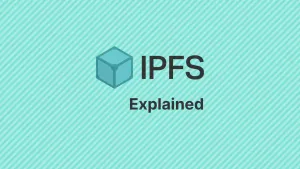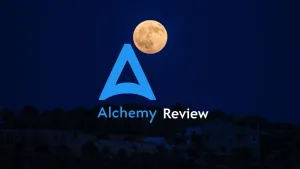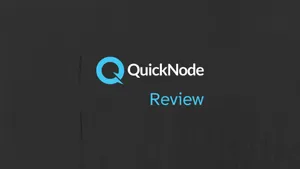While the internet itself is a vast network, traditional storage still relies on centralized servers, potentially exposing user data to security risks.
Storj offers a revolutionary alternative in a world of centralized cloud storage. This decentralized platform utilizes blockchain technology and a global network of devices to store your data securely. Unlike traditional cloud storage, Storj eliminates reliance on centralized servers and prioritizes encryption.
What is Storj?
Storj is a cloud storage platform founded in 2014 by Shawn Wilkinson. It leverages blockchain technology to create a decentralized data storage network. Unlike traditional cloud storage providers that rely on centralized servers, like Amazon Web Services (AWS) or Google Cloud Platform (GCP), Storj distributes data across a geographically dispersed network of independent computers called nodes. The Storj network boasts over 10,000 active nodes, offering more than 6 petabytes of collective storage capacity.
Features of Storj
Storj’s distributed data system has several features that offer a number of advantages.
1. Enhanced Security
Storj uses advanced encryption techniques to split data into fragments and distribute them across nodes. This makes it extremely difficult for hackers to breach the network and access sensitive information. Data breaches are a significant concern in cloud storage, with numbers rising every year; decentralized storage offered by Storj removes this risk.
2. Improved Efficiency and Performance
By eliminating centralized servers, Storj increases data retrieval speeds and creates a more reliable network. Traditional cloud storage can suffer from congestion and downtime during peak usage periods. This is not a concern with Storj.
3. Greater Transparency and Control
Storj users retain complete control over their data. The platform leverages blockchain technology to provide an immutable record of all transactions and data storage locations. This creates trust and transparency within the network.
Getting Storj
1. Set Up Your Account
Go to the Storj DCS website. Create a free account by providing your email address and setting a strong password.
2. Familiarize Yourself with the Interface
The Storj DCS dashboard will greet you upon successful registration. This intuitive interface allows you to manage various aspects of your storage experience.
3. Generate S3 Compatible Credentials (For Developers)
If you're a developer looking to integrate Storj into your applications, Storj offers S3-compatible credentials. These credentials allow seamless interaction with the Storj network using familiar S3 APIs.Within the Storj DCS dashboard, navigate to the Access section and generate a new S3 credential set. You'll receive an access key, secret key, and endpoint URL for programming access.
4. Upload and Download Files
There are two primary methods for uploading and downloading files:
- Web Interface
Directly upload and download files through the Storj DCS dashboard. Drag-and-drop functionality on the platform simplifies file management.
- Storj Share Desktop App
Use the intuitive desktop app for a more traditional file management experience. Navigate folders and upload and download files similar to how you would with any local storage solution.
What Is STORJ Token?
The STORJ token is the native cryptocurrency that powers the Storj network. It serves two functions:
1. Incentivize Node Operators
Individuals who contribute spare storage space on their devices to the network are rewarded with STORJ tokens.
2. Facilitate Payments
Users seeking secure and reliable storage on the Storj network pay node operators with STORJ tokens.
Storj Technology Layers
1. User Interface (UI) and Client Software
This layer acts as the entry point for users to interact with the Storj network. It can be a web-based application, a mobile app, or desktop software like Storj Share. Users can upload, download, manage, and share their files on this interface.
2. Storj Share
Storj Share is a desktop application that simplifies file management within the Storj ecosystem. It acts as a bridge between the user interface and the Storj network. While not mandatory, Storj Share offers a familiar file explorer experience for users accustomed to traditional storage solutions.
3. The Storj Network
This is the heart of Storj and what truly sets it apart. The Storj network is a distributed network built on blockchain technology. It divides and distributes data across a network of nodes, unlike centralized cloud storage, which stores data in one location.
4. Storj Satellite Contracts
These intelligent contracts, built on the Ethereum blockchain, play an important role in managing ownership, access control, and data integrity within the Storj network.
Ownership: Storj Satellite Contracts ensure that only the authorized owner (the person who uploaded the data) has the right to access and modify their files.
Access Control: Granular access control mechanisms allow users to share their data securely with others while defining specific permissions (read-only, read-write, etc.)
Data Integrity: These contracts cryptographically verify the authenticity and completeness of stored data, preventing unauthorized modifications or deletions.
Storj Pricing Plan
Storj discontinued the prior tiered pricing structure on April 1, 2024, and currently offers a single pricing plan with additional per-segment fees.
The current plan provides access to all of Storj's features, including decentralized storage, strong encryption, scalability, and transparency through blockchain technology. There's a base cost of $4.00 per Terabyte (TB) per month for storage.
The per-segment fee can be complex but potentially reduce costs for specific use cases. Here's what to consider:
- Storage Duration: You're charged based on the total number of segment hours your data is stored.
- Segments: Segments are the smallest unit of data stored on the Storj network. Large files are broken down into many segments, while small files might be a single segment.
- Egress Fee: An additional fee of $7.00 per TB applies for data retrieval from the network per month.
Conclusion
Storj offers an innovative decentralized cloud storage solution using blockchain technology. Unlike traditional cloud storage providers, Storj distributes data across a network of independent devices, eliminating reliance on centralized servers. This offers enhanced security, improved efficiency, and greater transparency.
The increasing demand for secure and decentralized data storage solutions makes Storj a good option. As more users and node operators join the network, Storj's collective storage capacity and overall functionality are expected to expand and improve.






